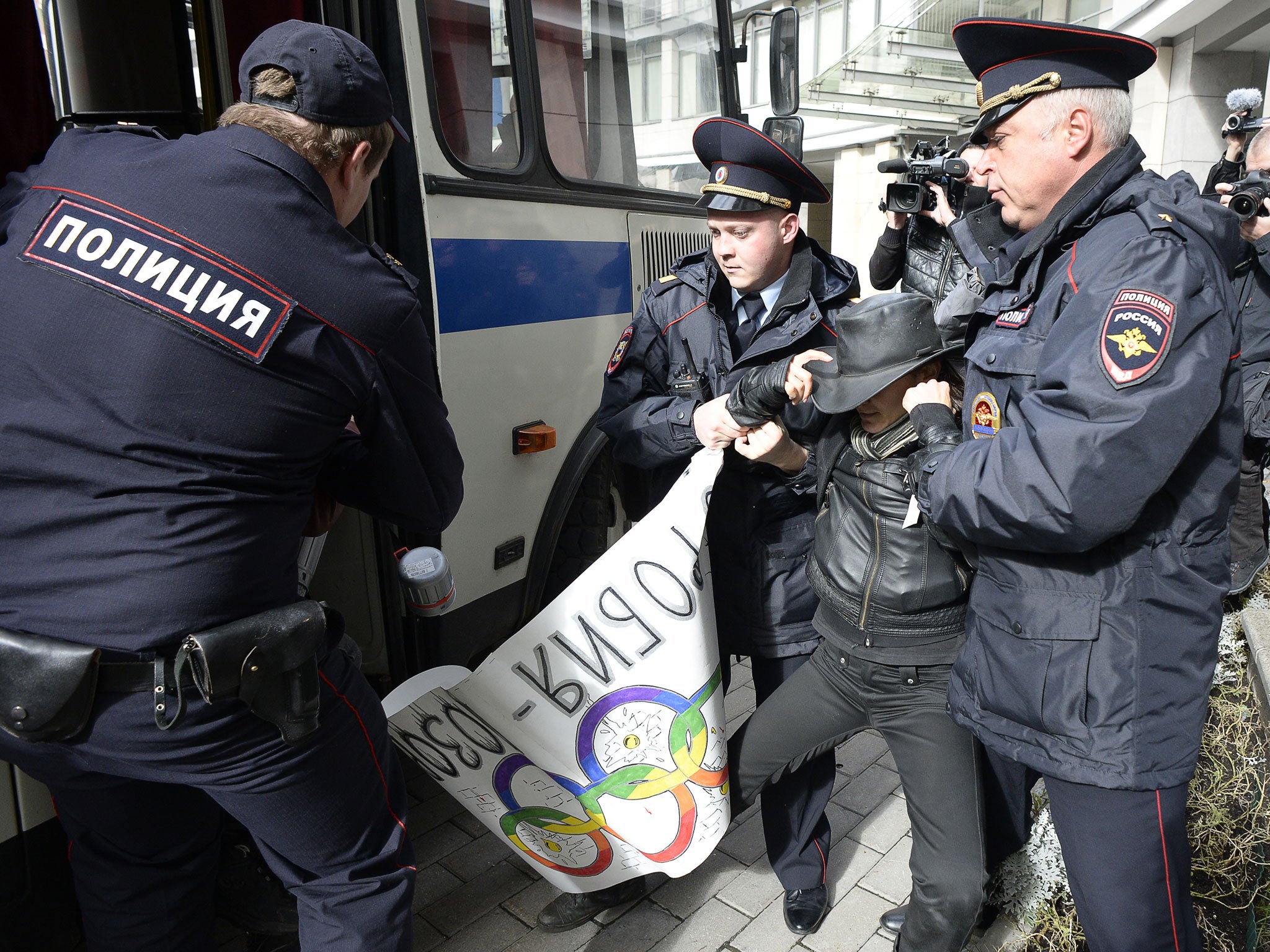Russian bisexual activist Irina Putilova is released from detention and taken off fast-track asylum list
Thousands of people signed a petition to support the 28-year-old's release

A woman who was facing deportation to Russia has been released from detention and taken off the tougher fast-track asylum system after thousands of people signed a petition to support her release.
Irina Putilova, a 28-year-old bisexual activist, left St Petersburg six months ago, after fearing for her safety. The activist talked to The Independent from Yarl’s Wood Immigration Removal Centre on Monday and said that under Russia’s new anti-gay legislation, which criminalises the promotion of non-heterosexual relationships, she did not feel safe to return home. She added that it was “totally impossible” for her to be free in Russia as an LGBTQ person.
Hours later, the Home Office released her and removed her from the fast-track process, after three days in detention. The likes of Stephen Fry and Peter Tatchell also supported her case.
Putilova, who is now back in Hackney, east London, is awaiting the date for her full asylum interview. She told The Independent she is grateful for the support she received and is thankful she now has more time to prepare her legal documents. “I’m really happy that I got out and I’m really happy to see my friends,” she said. “I want to spend my time supporting other people inside. It’s cruel detaining people [while they wait for asylum]. It means they can’t have normal lives before they are deported. I hope my case helps make asylum for other LGBTQ people from Russia, and from other countries, easier.”
Putilova, who was involved with a number of gender equality and anti-authoritarian movements in Russia, was detained last Friday after attending her first appointment at the asylum screening unit in Croydon. She said she feared her life was in danger in Russia, having been followed, threatened, arrested and beaten up by the Russian police for her activism. She added that Russian police went to her parents’ home seeking information, threatened to break her legs, and put her on a federal warrant list, meaning it is likely she will be arrested if she returns to Russia.
Her solicitor Milla Walker, of Luqmani Thompson & Partners, told The Independent that the case had seemed “inappropriate” for the fast-track process, which is meant for claims that have been identified as uncomplicated and quick to resolve.
Most fast-track claims take about two weeks for a decision to be reached, but the procedure has been criticised by human rights groups such as Liberty for detaining applicants on the basis of administrative convenience and by denying asylum-seekers the right to a “full and fair consideration of their claim.”
Walker said: “The majority of people who go into the fast-track don’t necessarily have a solicitor or legal aid, and they don’t have the amount of support Irina had. They don’t get a level of quick intervention. When decisions are taken at the asylum screening unit, people who make these decisions have very little information about asylum claims.
“I send my clients with a letter, explaining the basis of their claims and why they don’t meet the criteria. But clients tell me they refuse to look at the letters; they must make decisions based on other factors.”
A spokesman for the Home Office said the department does not routinely comment on individual cases.